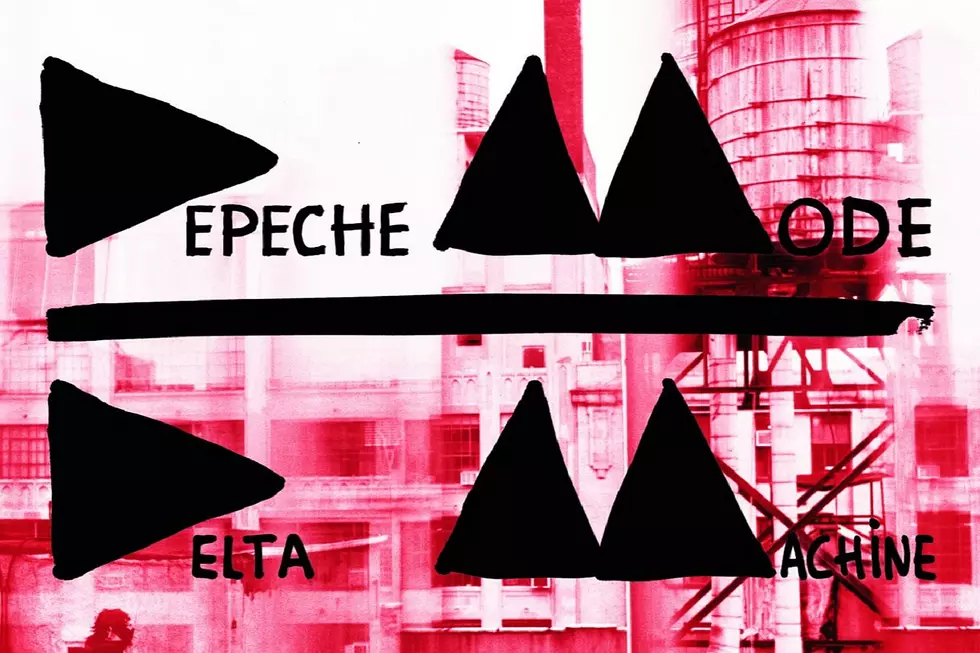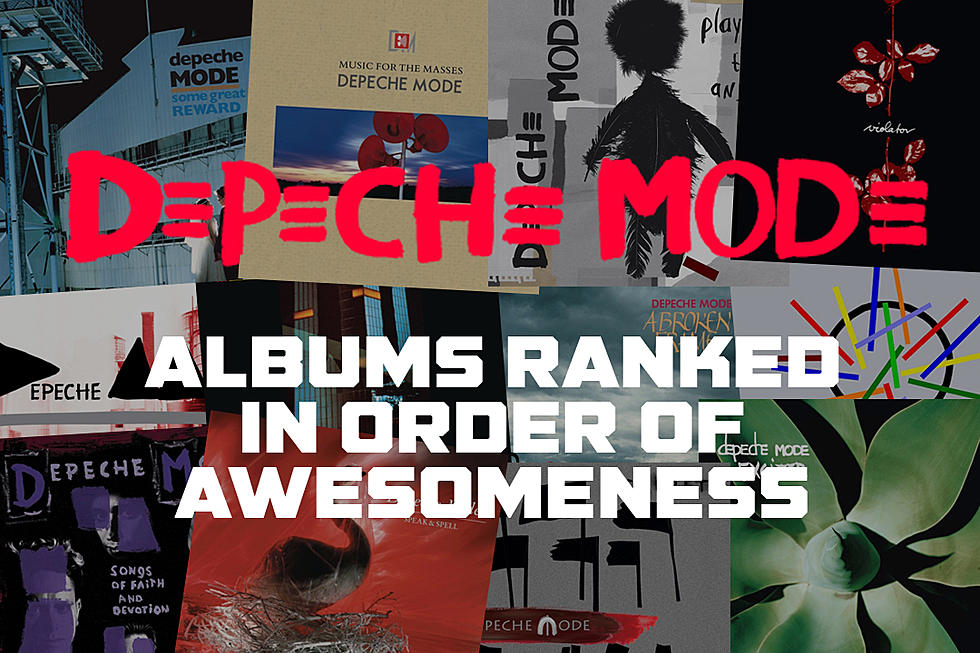
Instant Expert: Depeche Mode
You’ve seen them at parties, lurking in the corner, waiting to engage in battle disguised as conversation. They’re indie rock know-it-alls, and no matter what band or musician you mention, they’ve got an opinion — strong and almost certainly negative — ready to ram down your throat. With Instant Expert, we offer preparation for these very situations. Each Thursday, in advance of your weekend carousing, we pick an artist and provide a quickie career overview, highlighting both prevailing critical opinions and the inevitable contrarian counterarguments. Even if you’re completely unfamiliar with the music, you’ll be able to bluff your way through and defend your indie cred. This week: Depeche Mode.
- Kevin Winter, Getty Images
Kevin Winter, Getty Images The Gist
When Depeche Mode released their debut album in 1981, the synthesizer was dismissed as a novelty toy by serious musicians. It would take the better part of a decade for mainstream audiences to accept synth-pop as a viable form of Top 40 music. Depeche Mode were trailblazers, even if the very few Americans who heard of them in the early '80s wrote them off as British guys with weird hair. They scored a fluke Top 20 hit in 1984 with "People Are People,' but as their music got gloomier, their fan base grew larger. By the early '90s, they were one of the biggest bands on the planet, even hitting No. 1 with their 1993 album 'Songs of Faith and Devotion.' Through it all, they revealed the endless shades and tones that could be found in synth-based music.
Critical Consensus
'Violator,' the group's seventh album, includes its best set of songs: 'World in My Eyes,' 'Personal Jesus,' 'Enjoy the Silence' and 'Policy of Truth' are all here -- and they're all classics. It's no surprise the 1990 LP became Depeche Mode's breakthrough hit; they'd slowly been building to this point since the mid '80s. A perfect combination of songs, mood and confidence.
Contrarian Counterargument
The band adds more guitar, and therefore more muscle, to 1993's 'Songs of Faith and Devotion,' its only No. 1 album. For the first time in a decade, Depeche Mode took some real risks with their music, and it paid off in the more open-minded music climate of the mid '90s.
Counter-counterargument
Depeche Mode's 1981 debut 'Speak & Spell' is the only album with Vince Clarke, the synth-pop genius who went on to form Yaz and Erasure. Everything the group did after this is a pale imitation.
- Christopher Furlong, Getty Images
Christopher Furlong, Getty Images Whatever You Do, Don’t Say This
All that mopey goth stuff brings me down.
More From Diffuser.fm









